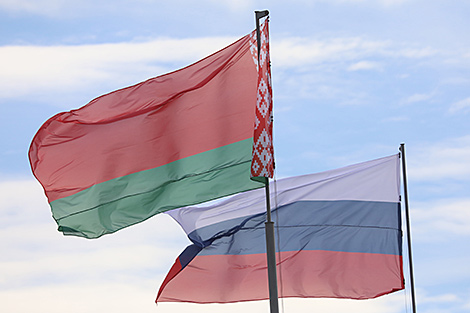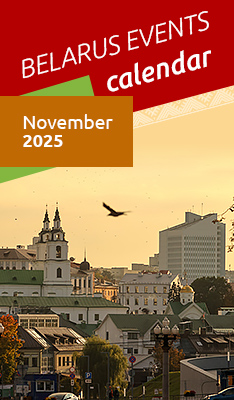Opinions & Interviews
Opinion: Scientific cooperation will help Belarus, Russia develop new world-level technologies

An archive photo
MINSK, 31 March (BelTA) - The joint session of the Presidiums of the National Academy of Sciences of Belarus (NASB) and the Russian Academy of Sciences (RAS), entitled Russia and Belarus: a Common Scientific Space, took place in Moscow on 30 March, BelTA learned from the press service of the NASB.
The participants of the session considered and approved the most important results of the work of the RAS and the NASB in 2020, as well as plans for joint activities. “It is extremely important that we found an opportunity to meet and discuss the key issues of our joint activities even in such a difficult time of fighting the pandemic, when the role of science cannot be overestimated. Joint meetings of our academies help us analyze in detail the current results of cooperation and create a basis for further fruitful cooperation in science and technology. Russian scientists are traditionally among the closest partners of our National Academy of Sciences, and we believe that the continuation of close cooperation will let us develop the latest technologies of the world level,” said Chairman of the Presidium of the National Academy of Sciences of Belarus Vladimir Gusakov.
Scientists of Belarus and Russia reviewed the most important results of the Inter-Academy Council on the development of the Union State and the implementation of the Union State programs, promising draft programs. The scientific elite of the two countries discussed the expansion of cooperation within the International Association of the Academies of Sciences (IAAS), which is headquartered at the National Academy of Sciences of Belarus. It was proposed to create a fund to support science within the International Association of the Academies of Sciences. Today the IAAS unites 26 organizations from 16 countries, including Belarus, Russia, Azerbaijan, Armenia, Ukraine, China, Mongolia, Moldova, Montenegro, Georgia and Vietnam.
Special attention was paid to strengthening the coordination of activities of the RAS and NASB in the field of new medical technologies to solve problems related to prevention and elimination of consequences of large-scale epidemics. As it was noted at the meeting, the main components of successful cooperation are the multi-vector nature of academic science, the availability of scientific schools and young scientists, and the possibility of cross-border partnerships between specialists. Cooperation between the RAS and the NASB within the the IAAS Scientific Council on Virology will be intensified, and videoconferences on various issues related to the epidemiological situation will be held on a regular basis.
The participants of the meeting approved scientific support for the development of strategic areas of spatial and socio-economic development of Belarus and Russia for the long term as well as the development of cooperation within the strategic areas of the Common Eurasia megaproject.
The participants of the meeting also heard a report on joint scientific projects in agriculture. Organizations of the RAS and the NASB were instructed to intensify interaction in agriculture and crop production (exchange of breeding material of agricultural plants in the study of genetic resources), in animal husbandry (breeding process, improving the biological value of fooder, prevention and treatment of the most common infectious, invasive and noncontagious animal diseases).
The Councils of Young Scientists of the RAS and the NASB were instructed to ensure effective continuation of cooperation in implementing joint research projects, as well as holding joint scientific, technical and organizational events - forums, seminars, schools of young scientists, and round tables.







 print version
print version make home page
make home page add to bookmarks
add to bookmarks

